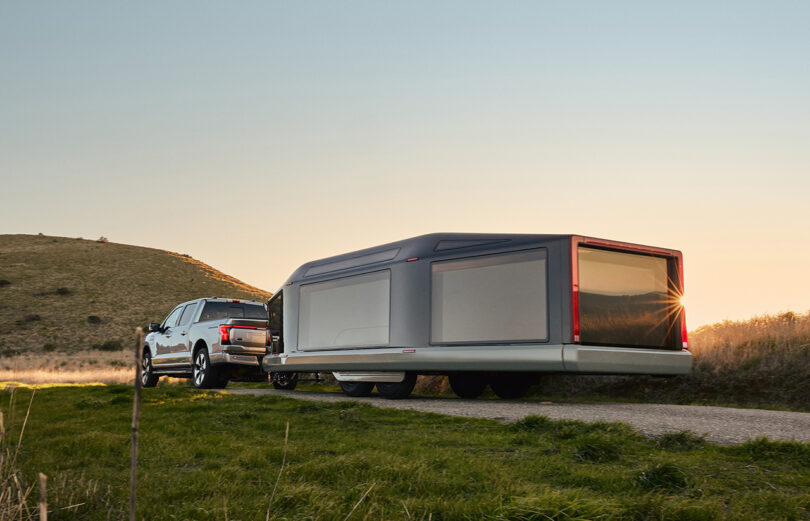Rolling up into any campground with the aerodynamic and futuristic Lightship L1 in tow would likely result in some serious curiosity amongst fellow RV enthusiasts. As a “clean-sheet approach to building an all-electric recreational vehicle,” the battery-powered, purpose-built L1’s minimalist design is merely half the story, with some crafty engineering within allowing for the L1’s self-propulsion to be towed with nary a mile of range or fuel efficiency lost.
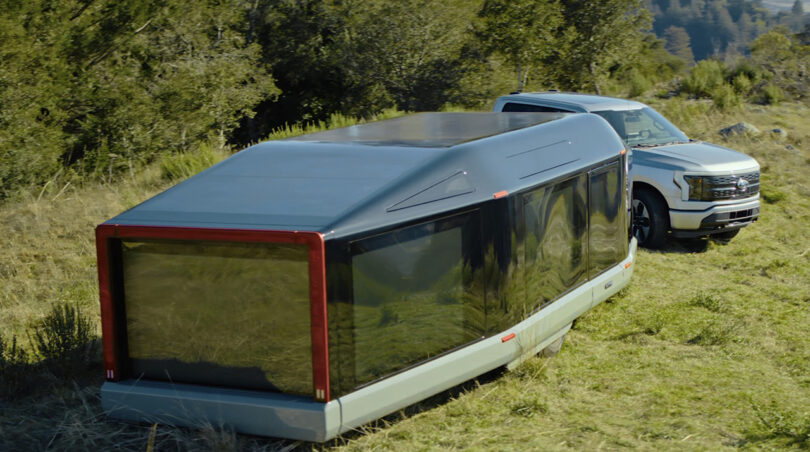
The Lightspeed L1 is 27 feet long, 8 feet and 6 inches wide, with 6 feet 9 inches head space while in road mode (10 feet when set up in camp mode), and weighs 7,500-lbs when fully decked out.
Aimed at the Tesla, Rivian, Ford Lightning, and other electrified utility vehicles with towing capacity (but also traditional gas powered vehicles), the Lightship L1 presents itself as an entirely reimagined approach to roughing it, with a streamlined shape offering a huge improvement from yesterday’s boxy recreational vehicle designs aesthetically, in efficiency, and in regards to all of the modern accoutrements that would make for a happy camper.
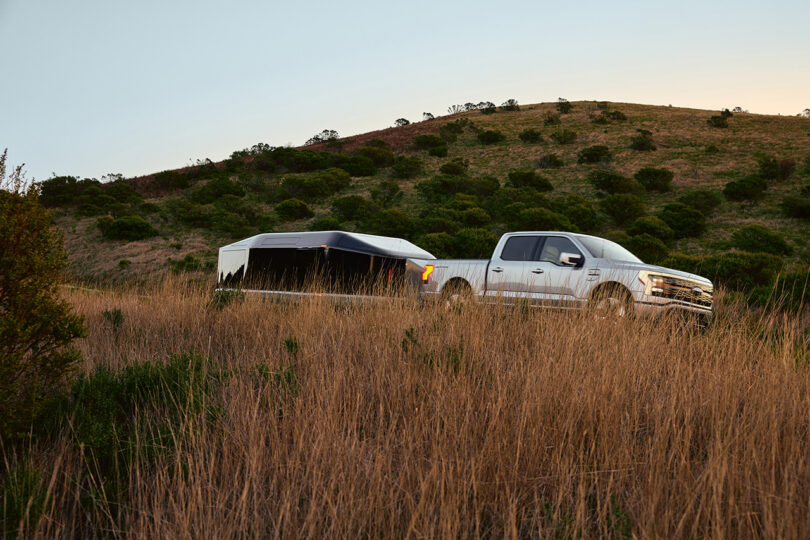
Unsurprisingly, Lightship’s wedge-like trailer is three times more aerodynamic than a traditional equivalent. In use, this aerodynamic shape aided by a 80 kWh battery powered electric powertrain means a 300-mile range EV or internal combustion engine vehicle towing the L1 would not lose a single mile of range.
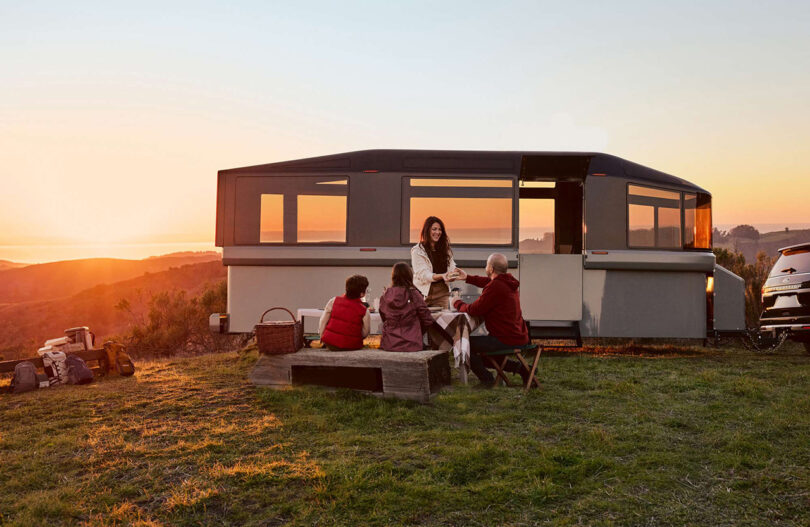
Lightship Co-Founder and CEO Ben Parker cites a dearth of innovation within the RV industry as the impetus for setting out to accomplish what Tesla has done with EVs. “Inefficient, unreliable product designs and a power experience that relies on smelly, noisy, gas or propane generators fundamentally hinder the amazing experience of traveling in the outdoors.”
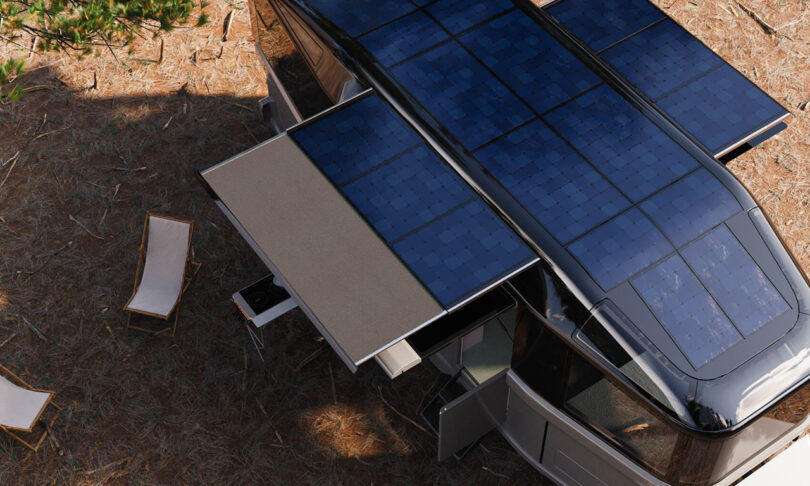
The L1’s battery system capacity is good for a week of off-grid power use without charging. Connected to a 3 kW solar power roof and awnings and you’re doing even better in the clean energy department.
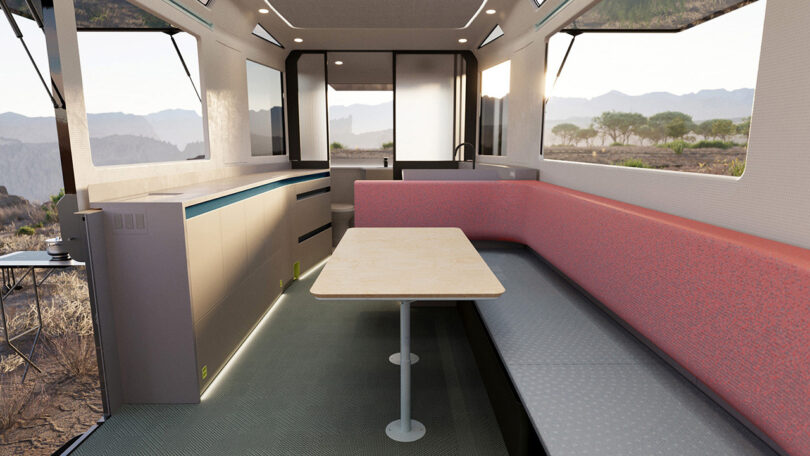
The well appointed modern interior is the result of a team of designers with experience in creating spaces within the aeronautics industry, an analogous industry where designers are challenged to create the feeling of spaciousness with limited space and the necessity to consider durability.
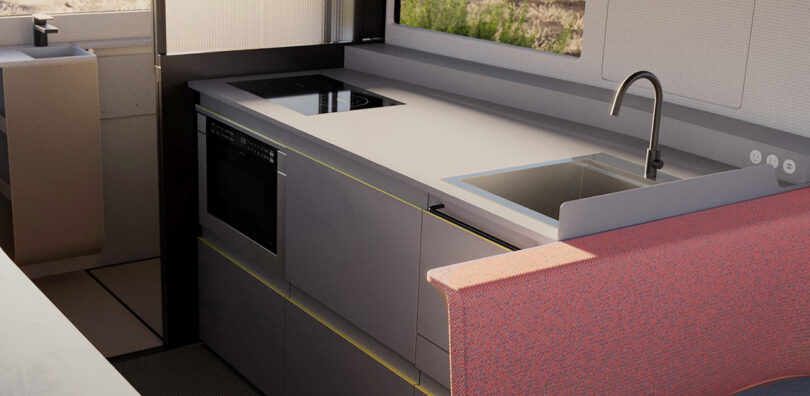
The Lightship L1 is outfitted with all-electric appliances, connectivity features, and can sleep four to six inhabitants. Details like a pull-out cook worktop and moving the cooling/heating system to the front of the trailer reflect the company’s efforts to appeal to customers already used to contemporary solutions in comforts and efficiency.
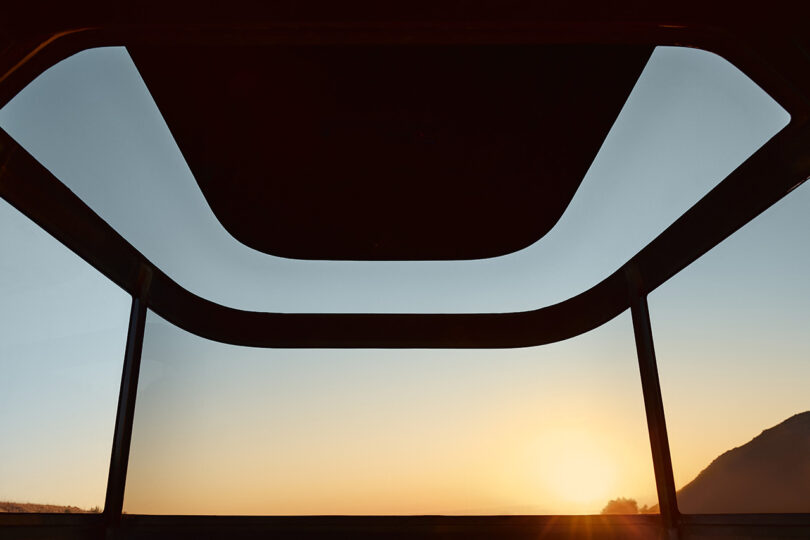
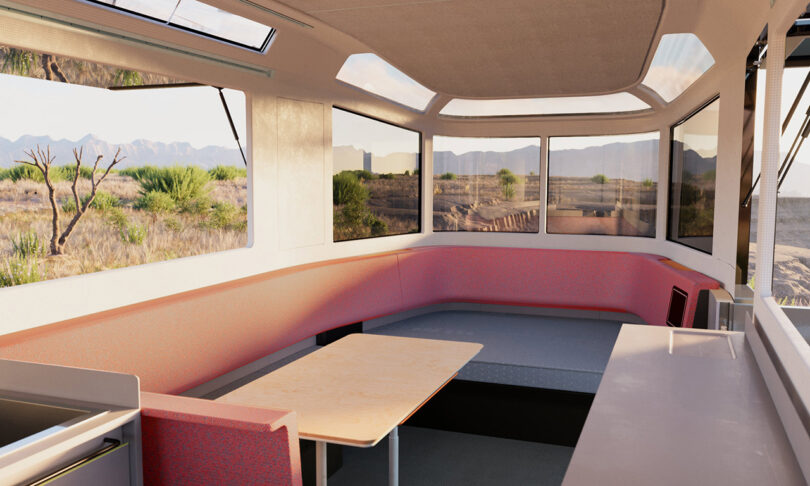
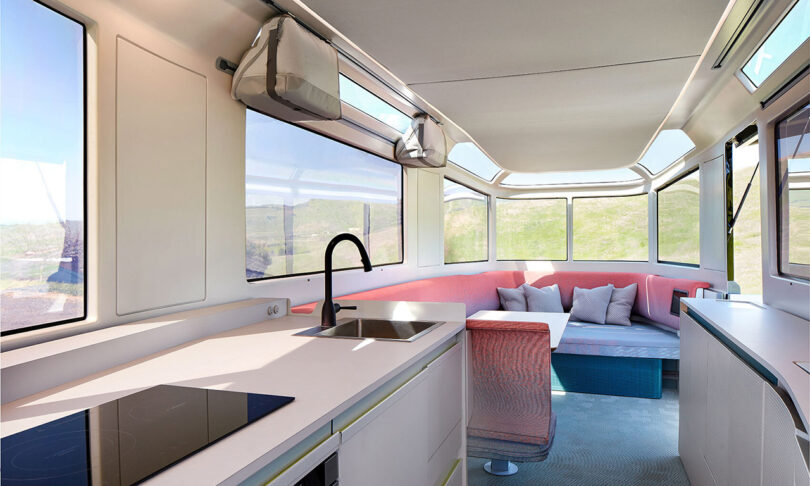
Production is expected to begin in late 2024 with deliveries aiming for the start of 2025, with the Lightship L1 starting at $125,000 (or $118,400 minus an available tax credit), with reservations being accepted online over at lightshiprv.com/reserve.

